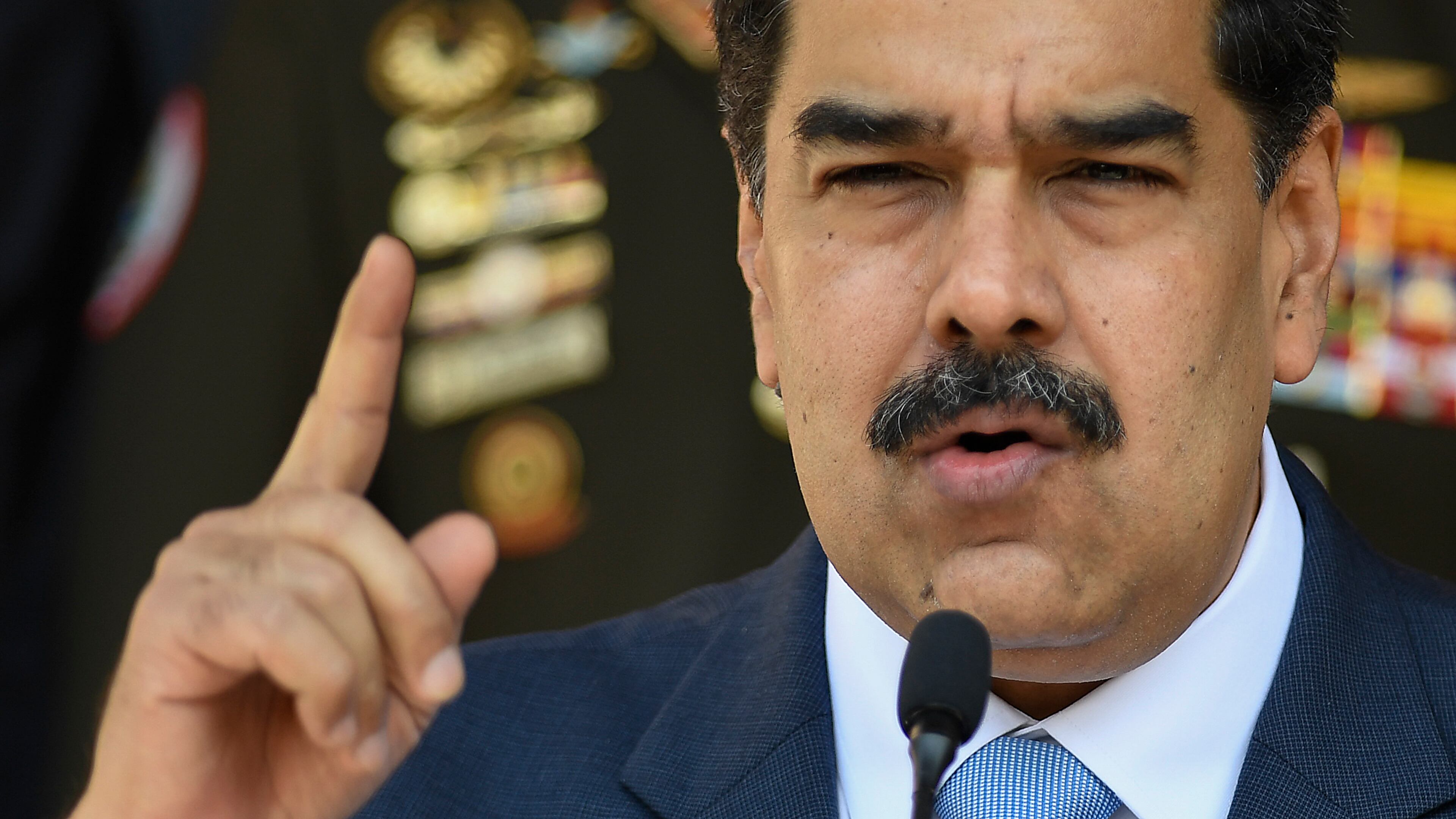BREAKING: US indicts Venezuela’s Maduro, aides

The U.S. Department of Justice announced Thursday that it has indicted Venezuela’s socialist leader Nicolás Maduro and several key aides on charges of narcoterrorism.
The department accused them of conspiring with Colombian rebels "to flood the United States with cocaine.”
“We estimate that somewhere between 200 and 250 metric tons of cocaine are shipped out of Venezuela by these routes. Those 250 metric tons equates to 30 million lethal doses,” it said.
New: DOJ announces criminal drug trafficking charges against Venezuelan president Maduro, Chief Justice etc with FARC in what AG Barr describes as a government that is “infected with corruption”.
— (@KaraScannell)Mar 26 2020
As the indictments were unsealed, Secretary of State Mike Pompeo announced the State Department would offer cash rewards of up to $55 million for information leading to the arrests or convictions of Maduro and four of his associates. The rewards, up to $15 million for Maduro and up to $10 million each for the others, are being offered under the department’s Narcotics Rewards Program, which has paid more than $130 million in awards for information regarding some 75 drug traffickers since it was created in 1986.
“While holding key positions in the Maduro regime, these individuals violated the public trust by facilitating shipments of narcotics from Venezuela, including control over planes that leave from a Venezuelan air base, as well as control of drug routes through the ports in Venezuela,” Pompeo said in a statement.
The indictment of a functioning head of state is highly unusual and is bound to ratchet up tensions between Washington and Caracas as the spread of the coronavirus threatens to collapse a health system and oil-dependent economy driven deep into the ground by years of corruption and U.S. sanctions.
Analysts said the action could boost Trump’s reelection chances in the key swing state of Florida, which he won by a narrow margin in 2016 and where Venezuelans, Cubans and Nicaraguans fleeing authoritarian regimes have political muscle.
But it is unclear how it brings Venezuela any closer to ending a 15-month standoff between Maduro, who has the support of Russia and China, and the U.S.-backed opposition leader Juan Guaidó. It also could fragment the U.S.-led coalition against Maduro if European and Latin American allies think the Trump administration is overreaching.
“This kind of action does nothing to help a negotiated solution —something that’s already really difficult,” said Roberta Jacobson, who served as the State Department’s top diplomat for Latin America until 2018.
Maduro, a 57-year-old former bus driver, portrays himself as an everyman icon of the Latin American left. He’s long accused the U.S. “empire” of looking for any excuse to take control of the world’s largest oil reserves, likening its plotting to the 1989 invasion of Panama and the removal of Gen. Manuel Noriega to face drug-trafficking charges in Florida.
Barr and Elliott Abrams, the State Department’s special envoy on Venezuela, are driving the hawkish U.S. stance toward Maduro much as they pushed for Noriega’s ouster in the late 1980s — Barr as a senior Justice Department official and Abrams as assistant secretary of state for Latin America.
U.S. officials see other parallels as well. Noriega transformed Panama into a playground for violent, international drug cartels, while the Trump administration has accused Maduro and his military henchmen of harboring drug traffickers, guerrillas from Colombia and even Hezbollah, a designated terrorist group.
They also have accused government officials together with well-connected businessmen of stealing hundreds of billions of dollars from the state coffers, much of it from state oil giant PDVSA, which has seen its production plunge to a seven-decade low.
Still, charging Maduro was no easy task. Sitting foreign leaders normally enjoy immunity from prosecution under U.S. law and international norms.
But the U.S. is among 60 countries that no longer consider Maduro a head of state even if he does hold de facto power. They instead recognize Guaidó, the head of congress, as Venezuela’s rightful leader following the socialist’s reelection in a 2018 race marred by allegations of fraud and an opposition boycott.

